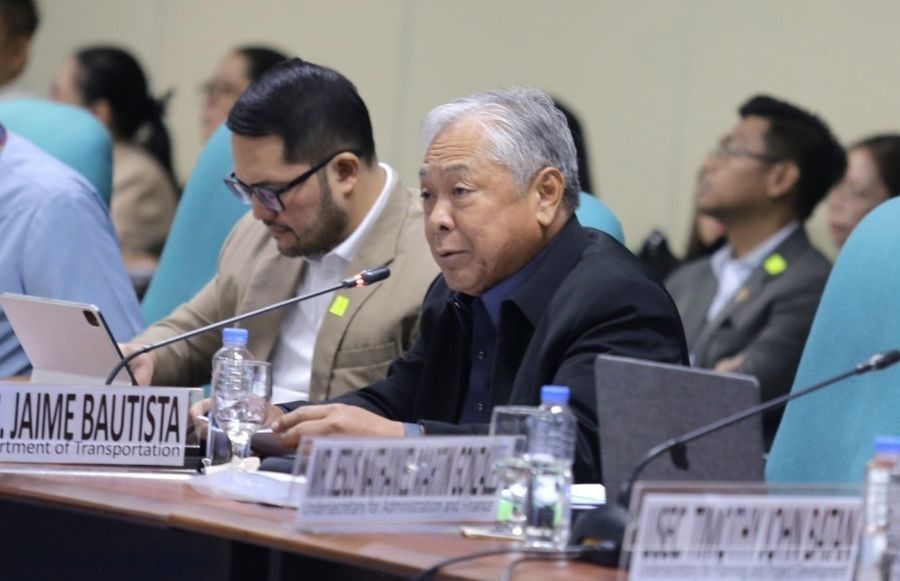'Unprogrammed funds' puzzle senators reviewing slashed DOTr budget

MANILA, Philippines — Senators were surprised to find that a significant portion of the Department of Transportation’s (DOTR) proposed budget for 2024 was reallocated to so-called unprogrammed funds.
In the executive branch's 2024 National Expenditure Program, the DOTr was allotted P213.7 billion. However, in the 2024 General Appropriations Act (GAA) passed by Congress, the DOTr was only allotted P41.2 billion, a mere 19% of the proposed amount.
"It’s that low? Are you sure?" Senate Minority Leader Koko Pimentel asked.
“Majority of our appropriations was put in the unprogrammed appropriations,” DOTR Assistant Secretary Jesus Gonzales responded, referring to 81% of the proposed budget which was not directly granted to the department.
Transportation Secretary Jaime Bautista that the "funds given to us were not enough."
Pimentel asked for how much of the 2024 unprogrammed funds were allocated for DOTR’s project, but Batan said that the unprogrammed funds acted as a lump sum for the entire government.
Asked by Pimentel if Congress was able to help the DOTR, Transport Secretary Jaime Bautista said “they helped partially.”
Several big-ticket transportation projects were transferred to the "Support to foreign-assisted program" category under unprogrammed funds. These include:
- MRT LINE 4 Project
- Davao Public Transport Modernization Project
- North-South Commuter Railway System
- EDSA Greenway Project
- Cebu Bus Rapid Transit Project
- Metro Manila Subway Project
- PNR South Long Haul Project
- Maritime Safety Enhancement Project
Senator JV Ejercito was taken aback. “The flagship programs, the priority programs, were relegated to unprogrammed. That is where I am puzzled. Why is this so?” he asked.
Questions surround 2024 budget
A controversial insertion. The issue extends beyond the DOTr's budget. Congress, possessing the power of the purse, controversially added P449.5-billion in unprogrammed funds for the executive branch in the 2024 GAA—far exceeding the initially proposed P281.9 billion.
This brings the total unprogrammed funds for President Ferdinand Marcos Jr.'s executive branch to P731 billion for 2024. This was a 160% increase from the P281.91 billion of unprogrammed funding in 2023.
Closed doors. Senators have also raised concerns about the secrecy surrounding budget deliberations. The bicameral conference, which finalized the 2024 GAA based on the National Expenditure Program, largely took place behind closed doors, following tradition.
Risa Hontiveros, an opposition senator, called for greater transparency of the process.
"The Bicam should return to the original practice of a full, face to face meeting and deliberation of all members of the bicam, even as certain issues may be left to the discretion of the chair," Hontiveros said in August.
Executive's defense. While the Department of Budget and Management (DBM) has defended unprogrammed funds as merely standby allocations.
Budget Secretary Amenah Pangandaman explained that most of the unprogrammed funds were assigned to foreign-assisted projects still awaiting approval from the Investment Coordination Committee and the National Economic and Development Authority Board.
The DBM has even requested for a total of P158.6 billion of unprogrammed funds allocated this year.
A challenge. Left-leaning party-list Bayan Muna and three opposition lawmakers filed a Supreme Court petition challenging the constitutionality of the insertion.
House Speaker Martin Romualdez, then Senate President Juan Miguel Zubiri, Executive Secretary Lucas Bersamin and President Ferdinand Marcos Jr. were named as respondents in the petition.
Rep. Arlene Brosas (Gabriela party-list) had called the funds discretionary or "standby pork" the president can dip into.
From unprogrammed to 'idle' funds
Aside from the unprogrammed funds issue, senators were surprised to find that the 2024 GAA granted the Department of Finance (DOF) the power to order the return of idle funds from government-owned and -controlled corporations (GOCCs) back to the national treasury.
Philhealth fund transfer. This came to light when the DOF ordered PhilHealth to return P89.9 billion worth of unused funds. While the DOF maintained the transfer was legal, it drew concerns from medical groups and lawmakers.
Sen. Bong Go, chair of the Senate Committee on Health, questioned the move in August, saying that while the DOF had a legal basis transfer what it deems "idle" money, it was still morally wrong.
"To our finance managers, I know you are doing your jobs… But please, as chair of this health committee. Please prioritize health!" Go said.
READ: Chamber of Commerce: Suspend PhilHealth premium hike, raise benefits
- Latest
- Trending






























